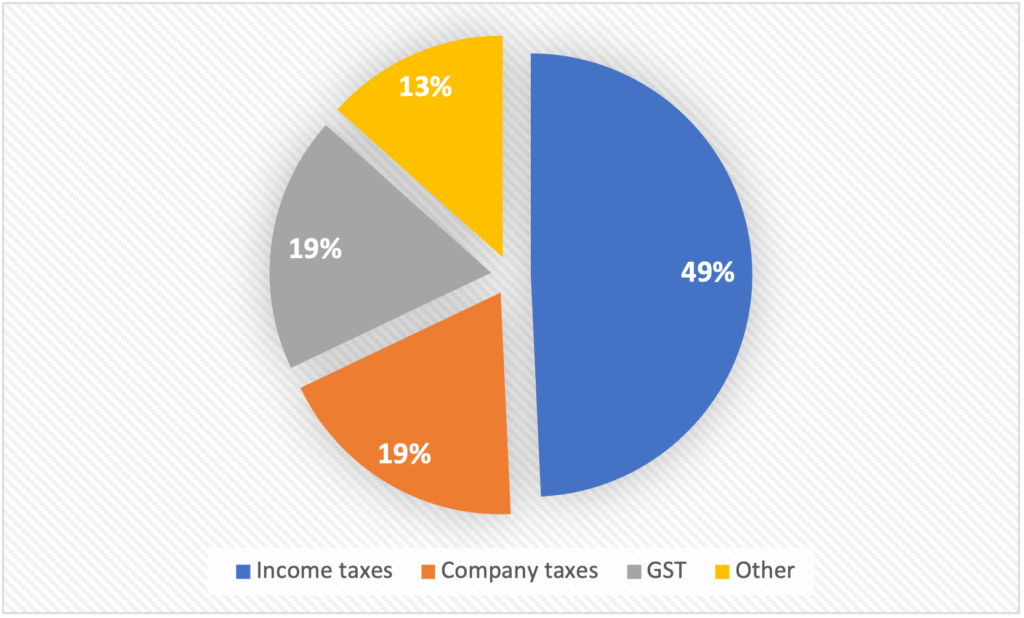We are at the end of the financial year and so tax is on most people’s minds. This year, it is doubly so because not only do we need to fill in our tax returns, but we are also eagerly waiting for the Government’s Stage 3 income tax cuts to take effect on 1 July. That means more take home-pay for everyone.
Tax is one of those issues that people often get cross about. We often resent having to pay tax, or we worry that not everyone pays their fair share.
COBA’s Chief Economic Adviser Nicki Hutley delves into where our tax goes, whether Australians pay more money in tax compared to taxes and what the Stage 3 tax cuts will mean for you!
Why is tax so important?
Governments collect tax so that they can provide services that the private sector doesn’t want to or can’t do at a reasonable price. For the Federal Government, this includes aged care, pensions and JobSeeker allowances, family support payments, health services, the NDIS, education, transport, public safety, culture, housing defence, the environment and many other services. Health, aged care and disability spending are the largest items and make up almost half of all spending.
These are all things that help to make our quality of life better and our society fairer. The figure below shows the make up of the biggest spending items, but there are literally thousands of programs and projects that our Federal Government oversees.
Figure 1 Federal Government expenses 2024-25

Source: Australian Treasury, Budget Paper 1, 2024-25
State and local governments also collect revenues such as stamp duty and rates to pay for the services they oversee such as transport, roads and waste services.
If Governments collect less tax, they have less money to spend on all these important services.
Does the Australian Government spend more than other countries?
Our politicians often like to criticise each other about spending too much money. While there are ways Governments can be more efficient, the majority of spending is key to a well-functioning society that delivers the services that Australian people want and expect of their governments. In fact, Australia’s Government spending is very much in line with the average of other advanced economies – and far less than most European and Scandinavian countries!
Who is paying for this spending?
In short, we all are! Governments collect money from Australian individuals and companies through our taxes plus a few other sources.
The lion’s share of revenue comes from individuals, contributing half of Government revenues. Companies contribute a further one fifth and the Good and Services Tax provides another fifth.
Figure 2 Australian Government revenues, 2024-25

Source: Australian Treasury
Economics tells us that some taxes are more efficient than others. A ‘bad’ tax can affect economic growth much more than a ‘good’ tax. Sales taxes, such as our GST are seen as ‘good’. Taxes such as Stamp Duty are seen as ‘bad’. Many economists think we should pay less income tax and more sales tax, to provide more incentive to work harder and spend less.
While Australians tend to pay higher income taxes than some other countries – but by no means all – many of those countries have to pay other levies. We also have many benefits that offset taxes paid, such as family allowances.
When the Stage 3 tax cuts come into effect on 1 July, the lowest rate of tax will fall from 19% to 16% and the next lowest rate will fall from 32.5% to 30%. For people on higher tax rates (37% and 45%), these will come in at higher salary threshold. This means that the vast majority of Australians will be paying a top tax rate of 30%, and an average tax rate that is much lower than that. Our highest tax rate is 45%, compared to 43.7% in the US. Belgium has the highest top marginal tax rate, at 79.5%! The UK is 63.25% and Japan is 55%
Whichever taxes we use to collect money for the Government, if we cut these taxes, that means there is less money to spend on the basic services which many of us rely on. It’s a tough choice.
